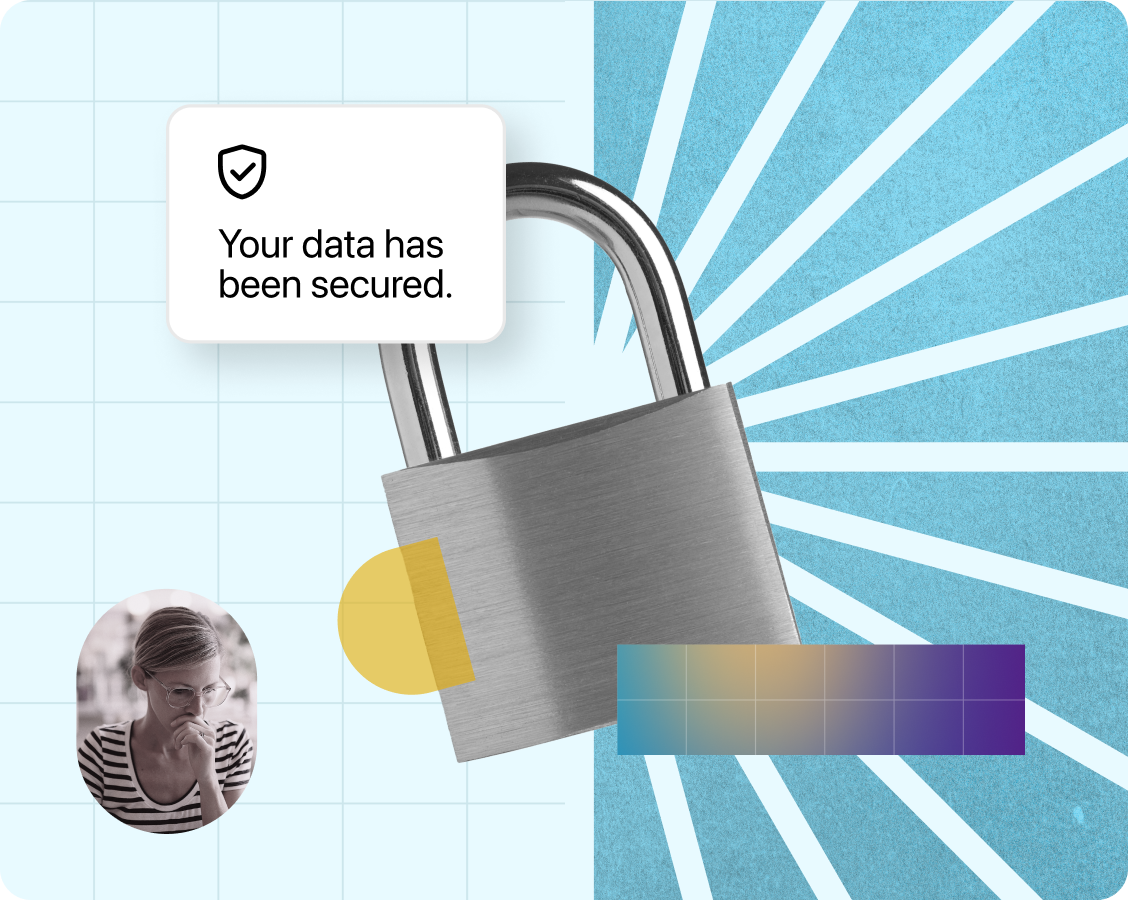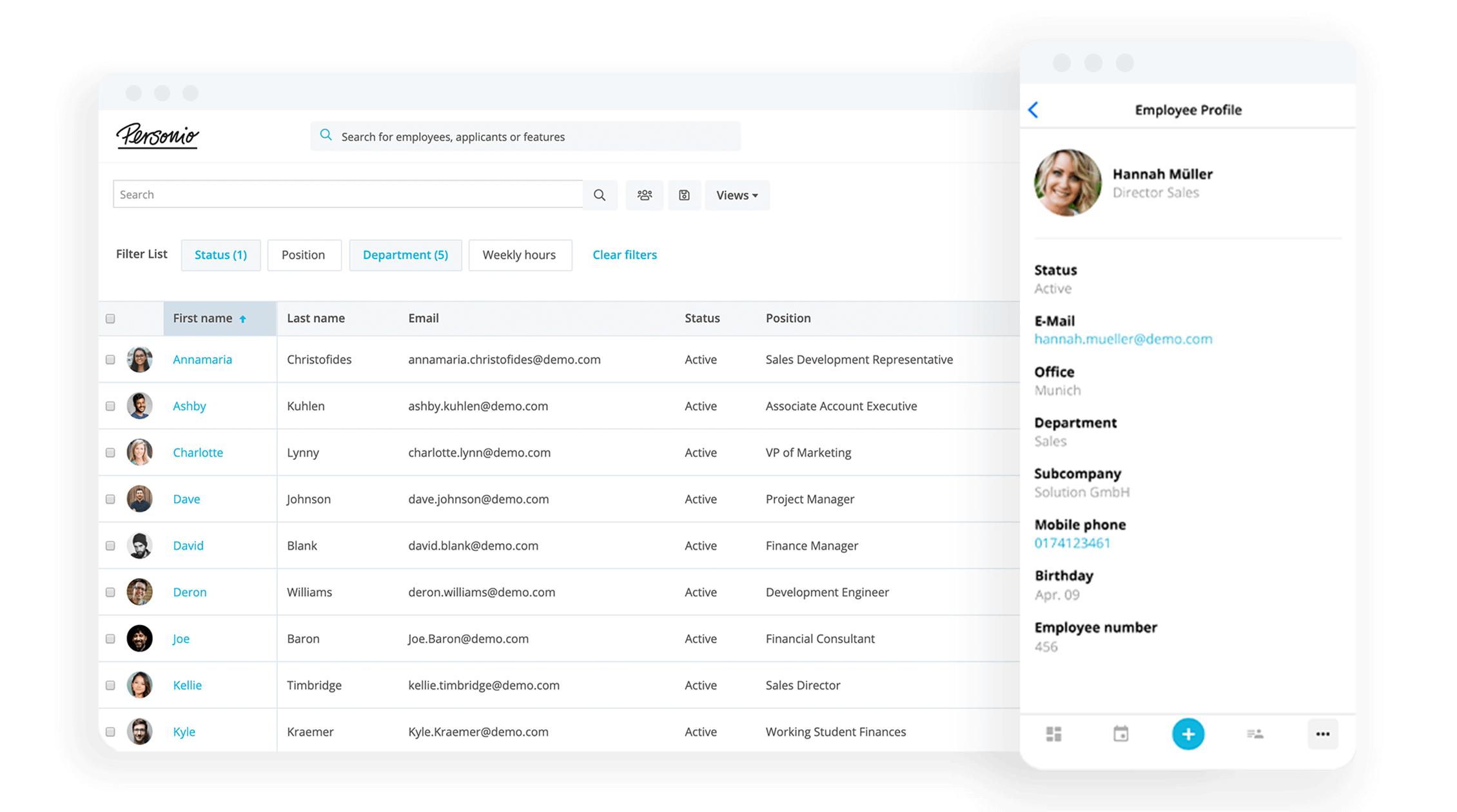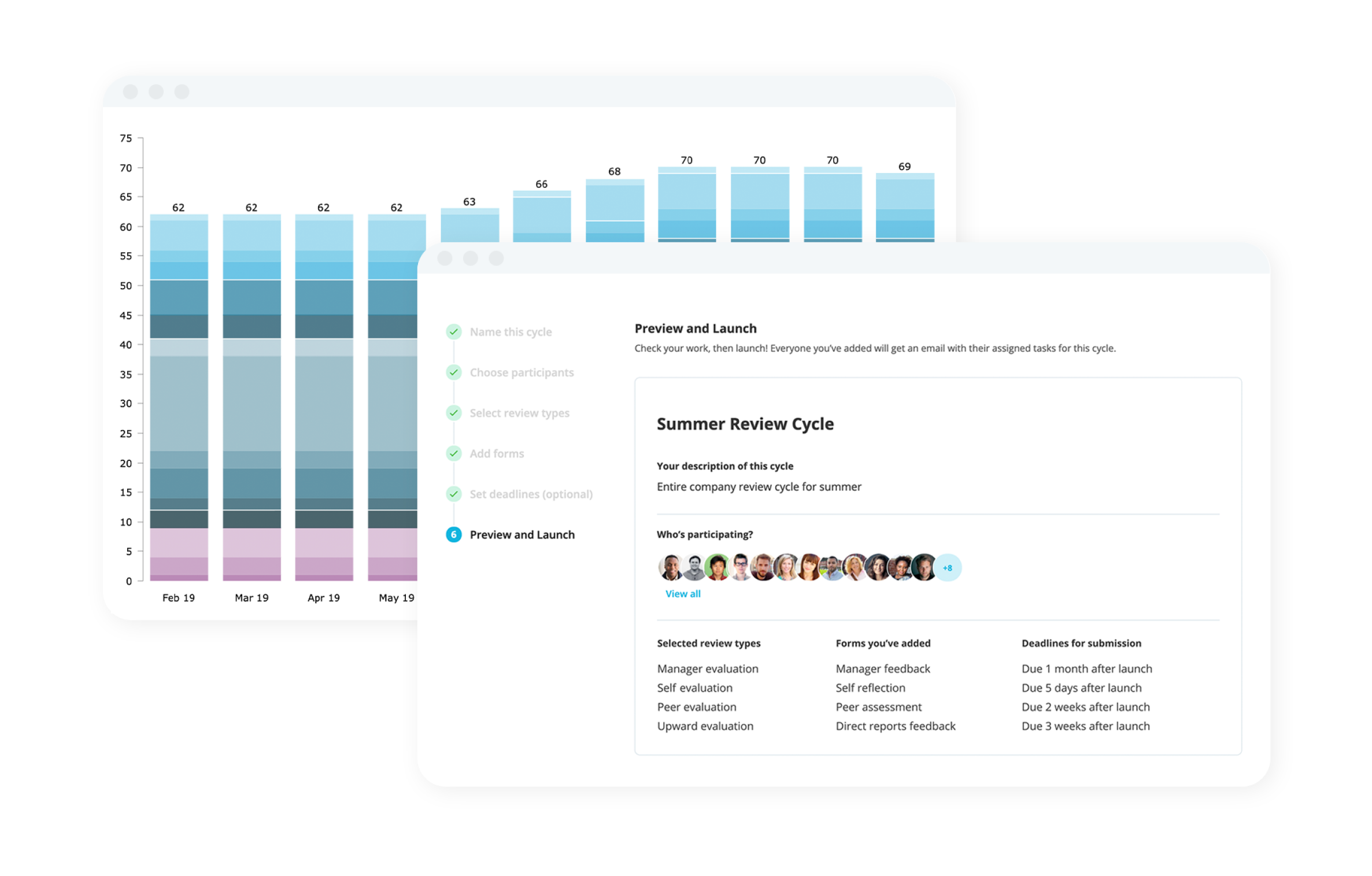
Full compliance from day one
Personio's airtight system offers a safe place for all of your employee data (with the innovation to match).
Find out moreWhat is HR compliance in the UK?

Navigating HR compliance is essential for organisations aiming to foster a positive work environment and avoid legal pitfalls. Our guide delves into the key areas of HR compliance, highlighting its importance and the pivotal role of an HR compliance software.
Whether you're an HR professional or a business leader, understanding and implementing effective compliance strategies is crucial for safeguarding your organisation's integrity and success. Let us show you how to do it.
What is HR compliance?
HR compliance refers to the process of ensuring that an organisation adheres to all relevant laws, regulations and standards governing employment practices. This includes everything from labour laws and workplace safety regulations to anti-discrimination policies and data protection requirements.
For HR professionals, maintaining compliance is crucial to avoid legal penalties, foster a positive work environment and uphold the organisation's reputation. If your organisation has compliance risks, it can have massive consequences both in the moment and long term.
Why does HR compliance matter?
There are a host of reasons why compliance for HR teams and organisations is important, but below we offer a quick runthrough to make the case:
Legal protection: Adhering to HR compliance regulations helps protect the organisation from legal penalties, fines and lawsuits. Non-compliance can result in significant financial losses and damage to an organisation's reputation.
Employee satisfaction: A compliant workplace fosters a positive work environment where employees feel valued and respected. This leads to higher employee satisfaction, improved morale and increased productivity.
Risk management: By maintaining compliance, organisations can identify and mitigate potential risks before they escalate into major issues. This proactive approach helps ensure business continuity and stability.
Reputation management: Organisations that prioritise HR compliance demonstrate their commitment to ethical practices and social responsibility. This enhances their reputation among employees, customers and stakeholders.
The five core areas of HR compliance
The following include the core areas of HR compliance that most teams will either need to manage directly or ensure compliance in a variety of ways:
Employment laws: This encompasses a wide range of regulations, including minimum wage laws, overtime pay and employee classification. Ensuring compliance with these laws helps protect the rights of employees and avoids costly legal disputes.
Health and safety regulations: Organisations must comply with health and safety standards to provide a safe working environment. This includes conducting regular risk assessments, providing necessary training and maintaining proper safety equipment.
Anti-discrimination laws: Compliance with anti-discrimination laws ensures that all employees are treated fairly regardless of race, gender, age, religion or disability. This not only fosters a diverse and inclusive workplace but also protects the organisation from discrimination lawsuits.
Data protection: With the rise of digital information, protecting employee data has become a critical aspect of HR compliance. Organisations must adhere to data protection regulations, such as the General Data Protection Regulation (GDPR), to safeguard personal information and avoid data breaches.
Employee benefits and compensation: Compliance in this area involves ensuring that employee benefits and compensation packages meet legal standards and are administered fairly. This includes everything from retirement plans and health insurance to paid leave and bonuses.
How to make your HR department compliant
Ensuring your HR department is compliant involves a combination of understanding relevant laws, implementing robust policies, and utilising effective tools.
Here are key steps to achieve full HR compliance:
1. Stay informed about regulations
Regularly update your knowledge of local, national and international employment laws. This includes labour laws, health and safety regulations, anti-discrimination policies and data protection requirements. Subscribing to legal updates and participating in HR compliance training can help keep your team informed.
2. Develop comprehensive policies
Create and maintain clear, comprehensive HR policies that cover all aspects of employment, from hiring and onboarding to performance management and termination. Ensure these policies are easily accessible to all employees and regularly reviewed to reflect any legal changes.
3. Conduct regular audits
Perform regular internal audits to assess your compliance status. This helps identify any gaps or areas of non-compliance and allows you to take corrective actions promptly. Audits should cover employee records, payroll processes, health and safety practices and data protection measures.
4. Provide ongoing training
Invest in continuous training for your HR team and employees to ensure they understand compliance requirements and their roles in maintaining them. Training should cover topics like workplace safety, anti-discrimination laws, and data privacy.
5. Leverage the power of an HR software

One of the most effective ways to ensure your HR department remains compliant is by using a comprehensive solution like Personio. Here’s how Personio can help:
Centralised data management: Personio provides a secure, centralised platform to store and manage all compliance-related data, including employee records, training certifications and policy documents.
Automated compliance tracking: The software automates the tracking of compliance requirements, deadlines and updates. This reduces the risk of human error and ensures your organisation remains up-to-date with the latest regulations.
Real-time reporting and analytics: Personio offers real-time reporting features that allow HR professionals to monitor compliance status and identify potential issues. This enables timely interventions and corrective actions.
Enhanced security: With robust security features, Personio ensures that sensitive employee data is protected, helping you comply with data protection regulations and prevent data breaches.
Streamlined processes: By automating workflows and reducing manual tasks, Personio frees up your HR team to focus on strategic initiatives and employee engagement, all while maintaining compliance.
6. Foster a culture of compliance
Encourage a culture of compliance within your organisation by promoting transparency, accountability, and ethical behaviour. Ensure that all employees understand the importance of compliance and their role in upholding it.
Full compliance is easy with Personio

Personio’s all-in-one HR software is designed to centralise and streamline all aspects of compliance across the employee lifecycle. This way, your teams can stay ahead of regulatory requirements, while ensuring employees feel heard.
Whether it’s ensuring that your records are up to date in digital employee files, that your data is always protected with ironclad data protection or your team wants to introduce a whistleblowing solution — Personio is designed to help your entire organisation.
Reach out to a Personio expert today to learn how our software can transform your compliance processes and ensure your organisation remains compliant, secure and efficient.
